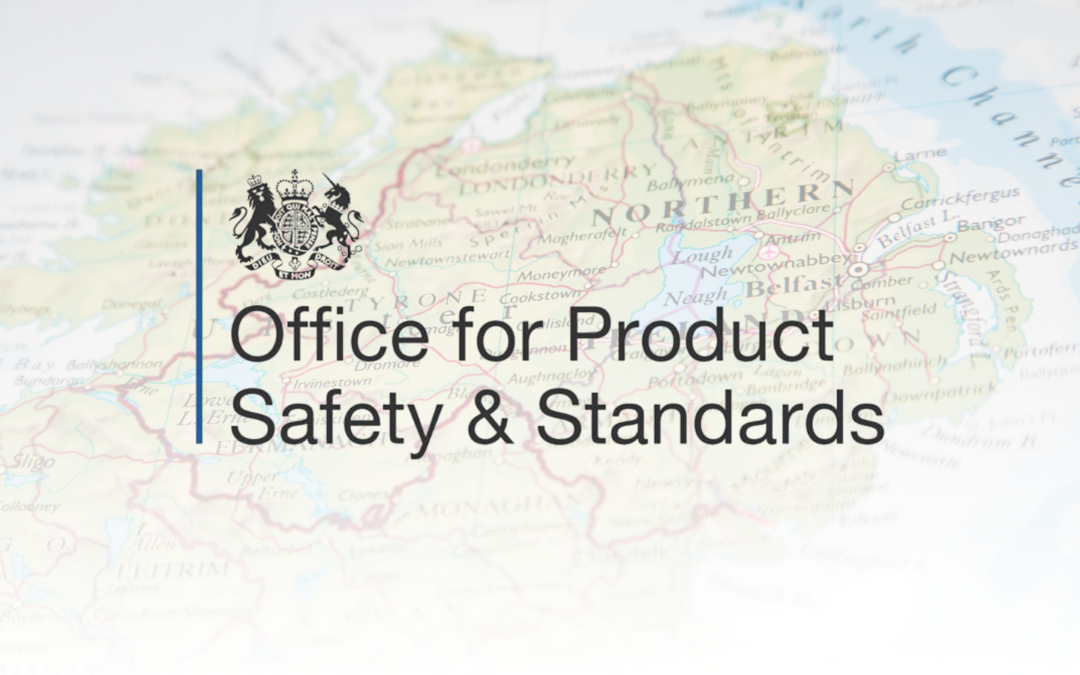
by Oscar Venus | Apr 13, 2023 | Main News Feed, Membership
To improve access to new technology and promote the impact that improved motivation and productivity can have in the drylining industry, FIS and Mafic are offering five FIS members the chance to trial Mafic’s FAIRPAY rewards platform.
The platform has been developed to help organisations increase productivity and reduce costs by 10-20% by improving the motivation of their workforce.
This inclusive offer worth £3,500 includes:
– 12 people
– 12 weeks
– Free setup
– Subscription costs discounted by 75% to £450+VAT
FIS members taking part will still need to fund the bonuses and incentives that go directly to employees. These incentives drive savings that are multiples of the cost – you reduce cost by paying your best people more money – and Mafic will help to structure this in a way that minimises risk by basing the incentives around improvement.
Based on results elsewhere, it is estimated that you could save £10,000-£20,000 on labour costs from the demonstration, plus other benefits like improved retention rates. You can see how FIS member Errigal Contracts has benefited from using FAIRPAY here on page 7.
Iain Mcilwee, FIS CEO said: We are supporting this offer with Mafic in return for anonymised data which will be shared with FIS (i.e. no names, sites, dates, or geographic data) to help us better understand productivity in the industry, so that we can better serve and support our members. Mafic has just five discounted projects available, so please express an interest early to avoid disappointment.’
For more information contact Ed Burns at ed.burns@mafic.ltd or call him on 07967 968 346.

by Oscar Venus | Sep 23, 2022 | Main News Feed
You may be aware that the venue has changed for the AGM/Members Meeting on 6 October, which is now being held at Hill Dickinson LLP, The Broadgate Tower, London. This has opened up the opportunity for event sponsors to have a pop-up stand/table-top, as we now have more space.
We already have 50 plus members booked to attend. To book your place click here.
There are also opportunities still available to sponsor our other members meetings, taking place in Birmingham, Manchester and Glasgow.
If you are interested call FIS on 0121 707 0077 or email clairmooney@thefis.org

by Oscar Venus | Sep 22, 2022 | Drylining, Main News Feed
Due to the great number of people who have boked to attend we have decided to move the venue so more of you can join us in person to The National Federation of Roofing Contractors (NFRC) venue at 31 Worship Street London EC2A 2DY Nearest tube is Old street or a short walk from Moorgate tube station.
There will be a light lunch and a chance to network from 12.30 and an opportunity to look and discuss new products from SpecWall and RawlPlug
The full agenda can be found here
- Compliance – Publication of the Building Safety Act in April
- Building Systems and Fire Walls – avoid delays at Gateway 2
- Deflection head details – how to avoid non-compliance and legacy issues when installing
- BS8000-8 standard. Guidance on design and tolerances in installation for drylining, to be published later this year
- Research project findings – the cause of creaking in tall residential towers in high wind conditions
- FIS vetting process – how it can support in managing compliance
- Competence management plans – toolkit to assist members implementing a plan
- Site Guide update – reducing waste and rework
We hope you can join us afterwards for a drink and a chance to network.
We look forward to meeting you all again, but please register early as space is limited.

by Oscar Venus | Sep 14, 2022 | Main News Feed
The Cabinet Office has created a visual toolkit for partners, businesses, trade organisations, ALBs and the public sector during this time of mourning to show the country speaking with one voice of unity.
Click here to access

by Oscar Venus | Aug 26, 2022 | Skills
Thousands of businesses can now apply for up to £15,000 to help retrain and upskill their workforce. The Scottish Government’s Flexible Workforce Development Fund provides workers in organisations of all sizes with access to training courses through local colleges, the Open University in Scotland and Skills Development Scotland. Now entering its sixth year, the fund is open to organisations who pay the UK Apprenticeship Levy and small-to-medium size business (SMEs). The initiative plays a crucial role in Scotland’s National Strategy for Economic Transformation, which outlines how the Scottish Government will work to develop the best economic performance possible over the decade ahead.
Youth Employment and Training Minister Jamie Hepburn said:
“We know times are tough for many businesses, so this funding will help them to continue investing in their workforce, addressing skills gaps and improving productivity. A skilled workforce is vital to the Scottish economy and we want as many businesses as possible to benefit from this scheme. For the first time, all eligible employers can access training available via local colleges, Skills Development Scotland and the Open University, tailored to their needs. This provides an incredible opportunity for workers to upskill at a time when many businesses are opting for new ways of working. I would encourage all Scottish employers to find out more about the opportunities available to them.”
The Flexible Workforce Development Fund (FWDF) was introduced in 2017-18 and aims to provide employers with flexible workforce development training opportunities tailored to their needs to support inclusive economic growth through upskilling and reskilling of employees. Full information on the fund is available on the Scottish Funding Council website.
Employers can contact the Scottish Funding Council (SFC) at fwdf@sfc.sc.uk or Skills Development Scotland (SDS) at fwdf@sds.co.uk for further information on this year’s fund. Apprenticeship Levy-paying organisations will be able to access upskilling support to the value of £15,000, and non-levy paying SMEs up to £5,000. An independent evaluation of the fund was carried out in academic year 2021-22. The results will be published this autumn. More information on Scotland’s National Strategy for Economic Transformation
If you need information on funding available for skills, training and qualifications contact Marie Flinter on 07799 903103 or email marieflinter@thefis.org

by Oscar Venus | Aug 25, 2022 | Health and Safety, Technical
The Building Engineering Services Association (BESA) has issued an urgent warning to all contractors over the safety of fire dampers.
Inspections by maintenance contractors found that a “huge number of dampers” had been incorrectly installed and would fail to work during a building fire.
BESA’s head of technical Graeme Fox has urged contractors to “alert their clients immediately” so that rectification works can begin.
The issue revolves around the use of self-drilling “tek” screws which have been used to install an unknown number of dampers in projects. The screws have a higher melting temperature and do not melt if a building is on fire.
“This means that spring-loaded dampers will not be released to contain the spread of fire within the zone and ensure the integrity of the fire stopping measure,” Fox explained.
“Dampers must be secured by fusible fixings that allow the duct to break away, otherwise the collapsing duct could pull the damper out of place and break the seal between the fire zones,” he added.
BESA published a special announcement on the subject. It includes updated guidance and statutory requirements covering installation, testing and maintenance of fire dampers and smoke dampers.
The document also highlights clients’ legal obligations to ensure their fire safety systems remain fit for purpose in line with the Regulatory Reform (Fire Safety) Order 2005 for England and Wales and the Fire Safety (Scotland) Regulations 2006.
Fox said: “While this is clearly a very worrying situation, we can take some reassurance from the fact that this problem is being brought to our attention by the increasing frequency of fire damper inspections and tests as awareness grows of this extremely important issue.”
The latest BESA technical advice can be found here.

by Oscar Venus | Aug 25, 2022 | Contractual and Legal, Main News Feed
This is the first in a series of short blogs by FIS Consultant, Len Bunton on contractual and commercial issues he experiences when supporting FIS members and the wider community – it is designed to help FIS Members avoid common traps and build on our focus on collective experience.
There is nothing worse for sub-contractors than doing work on site and not getting paid for it. So how does that come about, and what can you do about it. The first thing FIS members need to do is to read the terms of the sub-contact you are offered, to identify any high-risk issues. If you are too busy, then there are plenty of experienced folks out there who can do it for you. Once potential problem clauses are identified, then you can raise these with the employer/contractor and try to negotiate these out. What happens if they wont budge, well I tell my clients jut to walk away, its not worth signing up to something that could put you out of business.
One area I want to focus on relates to site instructions and variations. A FIS member sent me a sub- contract recently where it states that you don’t carry out variations without a written variation instruction from the contractor, then they won’t be accepted, and if you do carry out the work then you won’t be paid. Now on many may occasions, you are working away, and the site manger says, “will you take down that ceiling and reboard it please as its been damaged by other trades.”……

by Oscar Venus | Aug 25, 2022 | Sustainability
Working with Birmingham University FIS have been offered a limited number of places on a new and exciting Net Zero Together training course that will support businesses in improving sustainability within their business and on their projects. The course is aimed at individuals employed or are part of an organisation and wish to become “sustainability champions” in their organisation. In order to be eligible for the funded place the participants would ideally reside in the West Midlands area or carry out a substantial proportion of their work in the region. The participant must have the support of their organisation and be employed by that business.
Structure of the Course
The first half of the course will be looking at the fundamental understanding and useful information about Sustainability, Net-Zero, and Life Cycle Assessment (LCA). This will be achieved through various teaching media including: virtual seminars; discussions; reading; and podcasts, to name a few.
The second part of the course will focus on the project work. The participants will be grouped into teams of 4-5 people. One of the organisations represented by a member in each group will be selected for the whole team to act as consultants in producing (or building upon) a sustainability plan for that organisation. For this part of the course, instead of weekly seminars there will be consultancy opportunities with industry and academic experts so the participants can ask more specific questions related to their particular project and gain greater insight and skills. The groups will then produce and deliver a presentation on their project at the end of the course at the Exchange.
In order to be eligible for the Skills Bootcamp Net Zero Together you will need:
- A letter of recommendation from your line manager or someone in a similar position.
- To demonstrate a role in the sustainability agenda in your company or that this course will help you become more involved.
- To be aged 19 or over.
- To have the right to work in the UK.
- To live in the West Midlands.
- To meet residency requirements.
Timings
September 2022 intake: To be eligible for assessment, your application must be complete and submitted before: Wednesday 14th September 2022. Before submitting your application, please make sure it is complete. Otherwise, your application will not be reviewed.
January 2023 intake: To be eligible for assessment, your application must be complete and submitted before: Wednesday 4th January 2023. Before submitting your application, please make sure it is complete. Otherwise, your application will not be reviewed.
Next Steps
FIS Sustainability Champion Flavie Lowres: “I know the team at Birmingham and they are doing great work. This is an amazing opportunity to develop knowledge within your business and our community and it would be great to see FIS Members grab it with both hands).
Places are limited and this is likely to be a very popular course – if you are interested in nominating a member of your team contact: Flavie Lowres flavielowres@thefis.org

by Oscar Venus | May 20, 2022 | Main News Feed
As you will have no doubt seen in recent news, the Government has announced it will introduce legislation to fix the Northern Ireland Protocol, which will act as a safeguard should the UK be unable to agree proposals with the EU through negotiations.
The legislation being introduced would remove customs processes for goods moving within the United Kingdom. It will allow businesses to choose to follow either UK or EU regulations under a dual regulatory approach, removing barriers to goods made to UK standards from being sold in Northern Ireland and cutting the processes that drive up costs and disincentives businesses. The legislation will fix issues so that people in Northern Ireland can benefit from the same tax and spend policies as everyone else in the UK. The UK has also made clear that goods which are destined for the EU will continue to undergo full processes applied under EU law as they do now and apply safeguards to avoid non-compliant products entering the EU Single Market.
You do not need to take any action now as we will continue to operate within current “standstill” arrangements, meaning you can move goods in exactly the same way as you do today, including existing grace periods and easements. Furthermore, you can continue to trade frictionlessly across the island of Ireland. The UK Government will be working closely with businesses as the new arrangements are developed and will communicate how any changes will work well before any changes come into effect.
Office for Product Safety and Standards

by Oscar Venus | Apr 21, 2022 | Main News Feed
The Employment Allowance has risen from £4,000 to £5,000, meaning businesses can now employ four full‐time workers on the National Living Wage without paying employer National Insurance Contributions (NICs). This is expected to benefit around 52,000 businesses in construction.

by Oscar Venus | Apr 21, 2022 | Main News Feed, Sustainability
Duty to report
Organisations with more than 500 employees and a turnover over £500 million are now required to report climate‐related financial information on an annual basis. The Department for Business, Energy & Industrial Strategy (BEIS) has published guidance to help organisations understand how to meet the new requirement.
This is likely to impact many companies in the finishes and interiors sector supply chain. Whilst most won’t be reporting, they will likely be under greater pressure to supply information and data to their larger clients.
Plastic Packaging Tax
The UK Government has introduced the Plastic Packaging Tax. This Tax came into force on 1st April 2022 and will be charged at a rate of £200 per tonne. The tax applies to ’packaging that contains more plastic by weight than any other single material’. However, packaging that contains at least 30% recycled plastic is exempt. For more details see the paper written by CPA here.
Need help complying, you can talk to the FIS Sustainability Champion on 0121 707 0077
Visit the FIS Sustainability Hub

by Oscar Venus | Apr 21, 2022 | Main News Feed, Sustainability
The New Hospital Programme (NHP), which is developing 48 hospitals by 2030, has published the NHP Supplier Guide. The guide is aligned to the Construction Playbook and sets out what is important to the NHP ‐ better, faster and greener procurement ‐ and what it requires from its supply chain to realise the opportunities available. The guide, which will be updated regularly, follows publication of the first NHP commercial pipeline, which gives suppliers visibility of current and future contract opportunities on proposed projects up to 2024.
Commenting on the launch of the new Guide NHP Commercial Director, Emma-Jane Houghton stated:
“Traditionally each time we build a new hospital today, it’s effectively treated as a standalone scheme that fails to fully capture the opportunities to standardise design, leverage scale or foster long term sustainable growth within the UK supply chain.
The NHP represents a dramatic shift from traditional ways of hospital building. We have a unique opportunity to create an infrastructure ecosystem that transforms the way hospitals are designed, procured and constructed.
The scale of the New Hospital Programme will call upon the skills and expertise of companies of all sizes, across a broad range of sectors.
This is an opportunity for businesses to make long-term investments in their capabilities, create jobs, drive growth and help in delivering world-leading experiences for patients and staff. We need to bring the right people and the right teams together to foster innovation and deliver hospitals of the future That’s why we’re calling upon the knowledge and experience of the widest breadth of suppliers from construction components, medical equipment and beyond.”
You can download the NHP Supplier Guide here

by Oscar Venus | Apr 21, 2022 | Labour
The Home Office has introduced a new immigration route, Global Business Mobility, to support companies expanding their presence in the UK. It includes a number of new visa options for foreign workers: Senior or Specialist Worker, Graduate Trainee, Secondment Worker, Service Supplier, and UK Expansion Worker. Companies will need a sponsor licence to provide a certificate of sponsorship for these new visas, but eligible foreign workers will not need to prove their knowledge of English when applying.
Most foreign workers in construction are likely to be ‘skilled workers’ and will require a Skilled Worker visa to work in an eligible occupation. The Build UK flowchart providing an overview of the process of employing a foreign worker, along with our detailed guidance on How to Get a Sponsor Licence and How to Apply for a Skilled Worker Visa, have been updated to reflect the latest requirements.

by Oscar Venus | Apr 21, 2022 | Main News Feed, Sustainability
The Government has released its British Energy Security Strategy with the aim of providing secure, clean and affordable energy for Great Britain. It sets out how the deployment of wind, nuclear, solar and hydrogen will be accelerated, which could see 95% of electricity being low carbon by 2030, whilst supporting the production of domestic oil and gas in the nearer term. Offering significant opportunities for construction, measures include planning reforms to cut the approval times for new offshore wind farms from four years to one year and a £120 million Future Nuclear Enabling Fund which could see eight new reactors built across Britain.
To help the industry reduce its reliance on diesel in line with the CO2nstruct Zero target to eliminate 78% of diesel plant from sites by 2035, Build UK has published its ‘Drive Out Diesel’ guide which contains a range of tips to use less diesel, go alternative and use more electric plant and equipment on site.

by Oscar Venus | Mar 30, 2022 | Market data, Material Shortages
Construction Product Availability: 30 March 2022
Statement from John Newcomb, CEO of the Builders Merchants Federation and Peter Caplehorn, CEO of the Construction Products Association, co-chairs of the Construction Leadership Council’s Product Availability working group.
While current demand remains strong there are the first signs of a slight softening and shift in the balance of demand, with some regions reporting a decline in the level of retail sales for DIY and home improvement project, but compensated by higher volumes of trade sales.
The supply picture remains stable in terms of full production with good stocks and availability of most products. As previously reported, supply challenges continue to affect bricks, aircrete blocks, roof tiles, gas boilers, plastic drainage and other plastic products dependent on polymers, and some electrical products particularly those using semi-conductors.
Price inflation remains the major concern. There are reports that some suppliers are only willing to hold quotes for tender prices for 24 hours. The resulting uncertainty is leading some contractors to pause before entering fixed-price or long-term contracts.
As highlighted in previous statements, the volatility of energy prices has begun impacting the market. Some manufacturers of energy-intensive products are now warning of surcharges linked to energy costs. This issue is not limited to the UK; the cost of energy is impacting manufacturers across Europe, with reports of cement plants in Spain closing due to the latest increases. However, UK manufacturers are managing stocks and the supply chain to enable continued supply.
UK brick and block stocks have also increased slightly during the quieter winter months but as the market accelerates in the spring it will be essential for builders to plan ahead and work with manufacturers to ensure timelines of availability.
The boiler market has been impacted by unprecedented demand coupled with supply chain challenges for steel, cardboard, plastics and electronic components. While availability will remain constrained over the summer months, manufacturers remain hopeful that the supply and demand will normalise by the end of the year.
Regarding plastic products, there are reports in some areas of shortages of raw materials that could lead to spikes in prices, but indications are hopeful that such matters may be sorted later in the spring.
Paints and coatings continue to be affected by ongoing raw material shortages recently exacerbated by further lockdowns in China and by the war in Ukraine. This is likely to affect prices, and possibly the availability of some products over the coming months.
After a turbulent 12-18 months, timber presents a positive picture with stable prices and plenty of stock in the UK, along with fewer problems reported with the ports and haulage. We note, however, that the market for MDF (medium density fibreboard) has seen marked price increases due to the soaring cost of oil derivatives which are key components in MDF resins and the melamine surfaces applied to such panels for use in kitchen and bathroom furniture.
Looking ahead, the war in Ukraine and the resulting sanctions on Russia and Belarus are likely to constrain the supply of pallets, birch plywood and OSB (oriented strand board). These countries are major suppliers of pallet wood and manufactured pallets, as well as large producers of the components of the resins used in wood-based panel manufacture including OSB. Russia is also one of the main sources of birch plywood, used in a variety of applications from transport and shop fitting to furniture and die cutting.
Other product areas that may be affected by the Russian invasion include ceramic tiles and sanitaryware, as Ukraine is a main source of supply for kaolin used in their manufacture. As reported previously, this group is also actively monitoring the indirect impact of sanctions on Russian steel, including heavy plates, coil and slab intended as upstream products for the EU market. Any shortages on the continent could have a knock-on effect on the UK market.
The war is already impacting the global shipping industry. Many countries have banned ships associated in any way to Russia. More widely, shipping lines are suspending or changing bookings because of sanctioned cargo, and congestion at ports is increasing owing to more stringent customs checks. In addition, Ukrainian and Russian nationals account for 15% of the global shipping workforce; with President Zelensky calling for all Ukrainians to return to fight, a severe workforce shortage could soon become apparent.
The Product Availability Group will now meet every three weeks to respond to changing conditions arising from price inflation and the war in Ukraine.
Manufacturers and trade associations provide updates on their own areas. The latest include:
Timber
Construction Product Availability Update 8 March 2022
Construction Product Availability: 8 March 2022
Statement from John Newcomb, CEO of the Builders Merchants Federation and Peter Caplehorn, CEO of the Construction Products Association, co-chairs of the Construction Leadership Council’s Product Availability working group
A mild winter has helped to maintain higher than average levels of construction during the first two months of the year, with strong sales in all product categories.
There are good stocks and availability of most products but, as reported in a previous statement (18 January 2022), supply challenges continue to affect bricks, aircrete blocks, roof tiles, steel lintels, cable trays and trunking, manhole covers, gas boilers and some electrical products, particularly those using semi-conductors and microchips. If strong demand and consumer sentiment continues, these shortages and extended lead times are likely to persist to some degree at least into the spring.
Price inflation, largely caused by a shortage of raw materials, rising energy, freight, and labour costs, is of greater concern than availability. Price increases of 5-10% have been announced by many manufacturers so far this year, and energy-intensive products have increased by as much as 20%. Such inflation is proving a root cause of serious difficulties for contractors.
Other ongoing issues include labour shortages, which are impacting all corners of the industry and show few signs of abating. Road haulage, however, has improved slightly, as Government has worked with industry over the past months to lessen the shortage of HGV drivers. In another area, for products produced in China and South East Asia, transport delays continue and costs remain elevated, with shipping rates still eight to nine times higher than pre-Covid levels and air cargo rates seven times higher.
The worldwide condemnation and imposition of sanctions on Russia and Belarus in response to Russia’s military invasion of Ukraine will likely have enormous implications and an impact on global trade, particularly on commodities, for years to come. The effect of the war on the building material supply in the UK is still to be determined. The region including Russia, Ukraine and Belarus accounted for only 1.25% of building products imported into the UK last year. However, there are likely to be higher levels of direct and indirect exposure to some product components either through raw materials such as aluminium, copper, bitumen, and pig-iron and iron ore used in the manufacture of steel, or through higher prices in more-exposed European markets. In addition, sanctions against individuals with links to the regime in Russia and firms with Russian ownership may affect the UK supply chain.
Individual firms and other organisations are also taking steps that will have implications for the supply of building materials from Russia and Ukraine. For example, the European Federation of Building Material Distributors (UFEMAT) has called on members to place an embargo on importing all Russian building materials until the war in Ukraine comes to an end.
Other supply chain risks cited by analysts highlight that Russia supplies one fifth of the world’s nickel exports (used in the production of lithium-ion batteries, for example). Perhaps more directly relevant to construction, a key input used in the production of semi-conductors is neon, much of which currently comes from both Ukraine and Russia. Alternative sources may require long term investments prior to being able to supply the global market.
Chip manufacturers currently hold an excess of two to four weeks’ additional inventory, but any prolonged supply disruption caused by military action in Ukraine will severely impact the production of semiconductors and products dependent on them.
Russia is also a major supplier of crude oil and gas. While the UK imports just 4% of gas from Russia, UK prices follow the European market and have doubled since the start of the year. Should sanctions be applied to energy products, replacing gas from Russia globally will lead to even greater price volatility for energy intensive products.
The Construction Leadership Council will be liaising with government to identify areas impacted by sanctions and the knock-on effect to UK construction.
Construction Product Availability Update 18 January 2022
Construction Product Availability: 18 January 2022
Statement from John Newcomb, CEO of the Builders Merchants Federation and Peter Caplehorn, CEO of the Construction Products Association, co-chairs of the Construction Leadership Council’s Product Availability working group
While sales remain strong, a gradual improvement in supply has been helped by the seasonal reduction in demand particularly in domestic repair, maintenance and improvement (RMI) over the Christmas period. Going into the new year there are relatively good stocks and availability of most products, including timber where prices have also fallen from their peak.
However, as reported in previous statements supply challenges continue to affect bricks and aircrete blocks, roof tiles, steel lintels, manhole covers, plastic drainage products and certain sealants, coatings and paints.
In addition, a shortage of semi-conductors is constraining the availability of boilers at a time when demand is exceptionally high. Semi-conductors are important components for many advanced construction products including lighting and fire protection systems, kitchen white goods and air-source heat pumps. Although PAG has not seen direct evidence that a shortage of chips is affecting production, we will be increasing market surveillance to spot any early signs of market disruption.
Rising energy costs and price inflation continue to cause concern, with the latest forecasts anticipating 2022 price inflation from 7-10+%, with multiple increases expected for some products.
The impact of Omicron has been limited, with an overall level of absence across UK industry at 5% or less during the past month, though some sectors, such as haulage, have been hit harder than others. Absence due to Covid remains a risk over the winter period but appears unlikely to cause major disruption at current levels.
Looking more closely at current and future challenges:
- A global shortage means that semi-conductors are on allocation. Due to the size of their orders, there is a natural bias in the system towards automotive and electronics firms, which may cause issues for manufacturers of boilers and building related electrical systems.
- The high level of demand means that a shortfall in the domestic production of bricks, which is already at full capacity, will continue throughout 2022 until three new UK brickmaking plants come on stream in 2023 and 2024, boosting UK annual capacity by about 150m bricks per year. Imports largely from the EU and potentially beyond will be required to meet current demand.
- Demand for roof tiles remains high with lead times averaging 24 weeks and rising to 41 weeks for some profiles. Additionally, clay tiles are subject to price increases due to rising energy costs.
- Raw material supply for plastic products has stabilised over the last quarter, leading to improvement in product supply. Order backlogs are not growing but are unlikely to be cleared until the second quarter of this year.
- Delays and volatile prices for global shipping look set to continue at least until Q3 2022. China is home to seven of the top 10 container ports, which have a sustained ‘zero’ policy with regard to Covid outbreaks, leading to shutdowns and delays that have worsened global bottlenecks. Furthermore, with the Beijing Winter Olympics taking place in February, factories will be closed in 64 northern Chinese cities to improve air quality. This will almost certainly affect some construction products, which will have a knock-on effect of levels of inventory later in 2022.
- While the issues previously affecting timber and cement availability have eased, they have not been fully resolved, and longer lead times may return as the volume of demand increases later in the year.
We continue to stress the importance of maintaining open lines of communication throughout the supply chain and encourage all sectors to continue to work closely and collaboratively to manage challenges and plan future work.
Construction Product Availability Update 21 December 2021
Construction Product Availability: 21 December 2021
Statement from John Newcomb, CEO of the Builders Merchants Federation and Peter Caplehorn, CEO of the Construction Products Association, co-chairs of the Construction Leadership Council’s Product Availability working group
We are currently seeing an improvement in the supply situation across all regions in the UK, which has taken some pressure off prices. However, this is largely due to a seasonal decline in activity. While much has been done to ameliorate the issues seen earlier in the year, there remain challenges in relation to UK production capacity for some products, and in relation to the operation of the logistics and shipping sectors.
We anticipate the return of pressure on supply chains to deliver products as construction activity remains strong next year, with longer lead times and further price increases anticipated. Furthermore, despite precautions being taken at merchants and manufacturers, the rapid increase in cases of Omicron is likely to impact production and operations into the New Year.
The uncertainty around delivery and price has a disproportionate impact on SME builders working mainly on domestic repair, maintenance and improvement projects, where clients want price certainty before the project begins. It is, therefore, essential to maintain open lines of communication throughout the supply chain. We encourage all sectors to continue to work closely and collaboratively to manage challenges and plan future work.
Looking more closely at current and future challenges:
- Bricks and blocks remain in short supply for the reasons outlined in our last statement (29 November). Demand is expected to be strong well into 2022, so imports may be necessary to a make up a shortfall in UK production until new production lines come on stream in 2023/24.
- While there are few issues with cement stocks at the moment, merchants are being asked to not to deplete stocks in their yards in preparation for the annual winter round of maintenance shut-downs. Manufacturers have committed to produce as much as they physically can, but supplies will typically decrease during this time. Also, as flagged in the November statement, manufacturers have raised concerns that rising energy costs will likely lead to price inflation.
- Demand for roof tiles remains high, with lead times averaging 24 weeks.
- Supplies of many timber products have returned to more normal levels and prices have fallen from highs, particularly for structural timber, however tongue & groove remains in short supply. Looking ahead, continuing congestion both here and at Scandinavian ports may lead to reduced supplies and higher prices in Q1 2022.
- Pressures on global shipping, including delays and volatile prices, look set to continue well into 2022. In addition to ongoing disruption stemming from China’s sustained ‘zero’ policy with regard to Covid-19 outbreaks, performance issues at Felixstowe have led some major shipping lines to divert vessels headed there from Asia to other, smaller ports in the UK.
- The logistics sector reports recent progress with government providing additional training opportunities and grants to get more HGV drivers on the roads. With driver wage increases and flexibility in working making the industry more attractive, we are hopeful that driver shortages will have less impact on our sector in 2022.
Construction Product Availability Update 29 November 2021
Construction Product Availability: 29 November 2021
Statement from John Newcomb, CEO of the Builders Merchants Federation and Peter Caplehorn, CEO of the Construction Products Association, co-chairs of the Construction Leadership Council’s Product Availability working group
While the market is no longer experiencing the extremely high levels of demand seen earlier in the year, and UK manufacturers remain at full production capacity, demand continues to outstrip supply for certain products, particularly those being imported. Still the current picture is more positive than seen in recent months, with improved availability of most products across most regions. There are, of course, exceptions, with ongoing challenges in the supply of bricks, blocks and roofing products, where timber battens have overtaken concrete roof tiles as the most difficult to obtain, and certain electro-technical products.
Residential repair, maintenance and improvement activity remains robust with most SME builders reporting full order books well into 2022. That said, the sector has recently seen a small but noticeable slowing. This is thought to be partly as a consequence of delayed projects and increased costs and lead times (highlighted in previous PAG statements), and partly down to seasonality. This softening has in fact helped improve some stocks, such as cement, held by manufacturers and merchants.
Activity across the infrastructure, commercial and new housebuilding sectors continues unabated, however, and will likely remain so into the first half of 2022. Reports from larger housebuilders and contractors suggest that while a variety of product shortages persist, the situation for most remains manageable.
More specifically, as also reported last month, brick supply presents a longer-term issue, and imported products are helping to meet a shortfall in current UK capacity until new lines come on stream in 2023 and 2024. The Brick Development Association suggests that with demand expected to remain high, lead times will be an issue for the coming year. For builders to ensure that they get the bricks they need, particularly if they are seeking non-stock bricks, they will have to work more closely with the brickmakers to ensure availability and to mitigate delays in delivery. While this may require flexibility around choice and specification, quantities should be sufficient to meet demand.
Consistently high demand over the past 18 months has also made it difficult for block manufacturers to build the level of stocks required to maintain regular supply throughout the year. Manufacturers are seeking to build stocks over the coming winter months while building sites are typically less active. Nonetheless, demand from new housebuilding is expected to put supply of blocks under pressure in early 2022.
Stocks of timber – a largely imported product – have seen some improvement, though prices remain volatile. Market reports reveal significant delays at ports both here and abroad, having a knock-on effect upstream to the Scandinavian mills where production has been forced to slow. This suggests that supplies may remain uneven into early 2022.
In the electrotechnical sector, products with electronic components and those made from steel, such as cable trays remain in short supply, while twin and earth cable has become more problematic. Product pricing continues to be challenge, particularly for medium sized contractors working on tight fixed price contracts.
Reported constraints relating to a shortage of HGV drivers have lessened for the time being, though the pre-Christmas period may cause further pressure. However, imports, particularly from the Far East, continue to be affected by long lead times, delays at ports and high container costs.
Uncertainty is now cited as a broad area of concern. Examples include the uncertainty around inflation and the pricing of products, particularly in relation to steel, cement, bricks, blocks, glass and ceramic tiles, which are all impacted by rising energy costs. Uncertainty around potential spikes in the number of Covid cases over the winter having an adverse effect on product availability. The impact of full Border controls that come into force at the end of this year is a further unknown, as is the implementation of the new UK CA Mark and UK Registration, Evaluation, Authorisation & Restriction of Chemicals (REACH) regulations.
In response to this, the CLC will work with the Department for Business, Energy & Industrial Strategy to build on the industry-wide perspective of the PAG and the data it can access, using horizon scanning to identify medium term problems affecting materials and product availability that can be mitigated by an agreed, planned response.
As always, open lines of communication throughout the supply chain remain essential, and we encourage all sectors to continue to work closely and collaboratively to manage challenges and plan future work.
You can access the FIS Toolkit on Managing Shortages (which provides a backdrop and links to available price index sources) here.
Construction Product Availability Update 24 August 2021
Statement from John Newcomb, CEO of the Builders Merchants Federation and Peter Caplehorn, CEO of the Construction Products Association, co-chairs of the Construction Leadership Council’s Product Availability working
Although the overall supply situation has not changed substantially, there has been a temporary easing this month, most probably due to a combination of the holiday period and some domestic customers delaying or cancelling projects due to higher costs or cost uncertainty.
Timber, cement, roofing products, bricks, blocks, insulation, steel and cable management systems remain the products in shortest supply, while global shortages of semi-conductors are a cause for concern in the lighting and appliance sectors. Although product and material price inflation has slowed, indications are that it will be 2022 before prices stabilise, with some manufacturers still to implement double digit price increases to recover current and future cost inflation.
Haulage, however, and the lack of availability of drivers, are now the major concerns affecting distribution with some suppliers asking builders merchants to collect their orders as they cannot get enough drivers to complete deliveries. Regional distribution is a particular issue, with some finding challenges arranging deliveries to Scotland and the South West of England.
The problem is not limited to our sector, and with similar haulage issues affecting a wider distribution network there is no short-term fix. The Department for Transport is engaging with the freight sector and hauliers to look at both interim and longer-term solutions, which require collaboration between government and the sector.
Container shipping continues to affect imports. Key ports in China are suffering reduced capacity due to Covid, but the backlog extends beyond China throughout distribution centres worldwide. This is forecast to continue through the peak Christmas season into early 2022. With capacity at a premium, container prices remain high; however, these rates are not sustainable in the long term and when demand signals change, we are likely to see prices reduce.
Looking forward, the group discussed the requirement for aggregates and other key products when HS2 demand is at its peak in 2022/23. Projected volumes are being shared with industry trade bodies, key suppliers and the CLC Product Availability Group to help provide greater clarity and confidence about the industry’s ability to deliver HS2 as well as all other projects. This is a particular concern for smaller builders, who have struggled to compete for supply during the current period of extraordinary demand.
Construction Product Availability Update 22 July 2021
Statement from John Newcomb, CEO of the Builders Merchants Federation and Peter Caplehorn, CEO of the Construction Products Association, co-chairs of the Construction Leadership Council’s Product Availability working group
The basic trends of the last six months remain, with global demand far in excess of supply leading to product shortages, rapid and sustained price inflation, long lead times and uncertainty regarding deliveries. It is also clear that the global shipping industry is far from recovered from the disruption caused by the coronavirus pandemic, with congested shipping routes, container cancellations and higher costs still evident.
The products most affected are those used in housebuilding and domestic repair maintenance and improvement (RMI), including roofing products, timber, insulation, landscaping products, blocks, sealants/PVA, PIR Insulation, kitchen carcassing and products that use plastic, e.g. drainage, some windows and bagged cement.
Bagged cement is particularly hard hit due to ongoing unprecedented demand but both bagged and bulk cement are on allocation; there are regional variations to this with some areas affected more than others. All UK kilns are operating but it may be a while before stocks return to normal. With high demand continuing, extended delivery times are expected to remain until the end of the year.
The high level of housing starts has caused a bow wave of demand for plastic pipes for groundworks and drainage. Some manufacturers are currently on allocation, but the expectation is that supply issues will be resolved by the end of Q3.
Demand for wood and wood products remains very strong and timber supply will continue to tighten into Q3, following the Scandinavian holiday and maintenance season in July, continuing the upward pressure on prices. There are some indications that the situation may start to improve after this as global demand is beginning to ease.
Within infrastructure and commercial construction, steel and aluminium are both experiencing significant supply disruption and price inflation.
There is also concern around the availability of steel cabling management systems which could continue into early 2022 and engineering services business are advised to plan ahead.
Overall, prices for products and materials have increased by a reported 10-15%, consistent with the Office of National Statistics figure for May of 10.2% overall with 12.8% for those most commonly used in RMI. Specific products, especially timber, has seen increases of 20-50% for most products and over 100% for OSB and other sheet materials. For the first time we have had reports that some merchants are destocking certain products that are no longer economic.
Labour, or rather the lack of it, is a rising concern. All regions report hauliers/HGV/LGV drivers are in short supply and very difficult to recruit, which is contributing to longer delivery times particularly away from major transport routes and urban areas. We continue to support the Road Haulage Association in its discussions with the Department of Transport to address the shortage. We are now receiving reports of other vacancies being hard to fill, from relatively unskilled roles, such as yard operatives, to experienced bricklayers.
These labour shortages are being exacerbated by the growing number of non-symptomatic drivers, tradespeople, merchant and manufacturing staff required to self-isolate after coming into contact with someone who tested positive for Covid-19. This will further stretch the supply chain.
Looking forward, housebuilders are managing current builds to completion but there are indications that smaller, regional developers may be forced to delay starting work on new sites until they have more certainty around product availability and lead times.
The demand for home improvement and RMI work remains strong but most work in this area is covered by JCT contracts which have no facility for any flexibility on material costs, leading to fears that we will see business failures arising from unsustainable contracts. This is now being investigated and may require a change in contractual positions.
Alongside pricing, stability and accuracy of supply remains the overarching concern and regular, accurate and transparent communication throughout the supply chain to the end client is deemed vital by all. It is important that all parties recognise the extent of the extraordinary challenges we are currently experiencing and adopt a flexible and collaborative approach to finding solutions.
Additional reports:
Steel Cabling Management Systems
Roofing
Construction Product Availability Update 23 June 2021
Statement from John Newcomb, CEO of the Builders Merchants Federation and Peter Caplehorn, CEO of the Construction Products Association, co-chairs of the Construction Leadership Council’s Product Availability working group
The overall product availability picture has not changed this month. Demand both in the UK and globally continues to dramatically outstrip supply and shows few signs of slowing during the seasonally busy summer months.
In the UK, record sales of building materials coupled with strong pre-orders and full pipelines of work are all putting enormous pressure on the supply chain which, in some sectors, has not fully recovered from the impact of Covid. This suggests the unprecedented challenges around a number of key product areas, particularly imported products and materials, will likely persist into the second half of 2021.
Timber, roof tiles and some steel products continue to be in short supply, as is bagged cement which may have been impacted by some manufacturers undertaking overdue preventative maintenance. Paints, sealants and chemical products, continue to be affected by raw material shortages, with paints additionally affected by a shortage of packaging, particularly metal cans. The situation with insulation boards has also become tighter, with PIR becoming harder to obtain and contractors actively seeking alternatives. Plasterboard has been subject to extended lead times with one major manufacturer indicating their products going on allocation. Some regions are also reporting delayed deliveries of bricks and blocks.
Electrical products have been affected by raw material shortages, particularly steel products and semi-conductors, since Autumn 2020. These issues are now compounded by the shipping backlog in China’s Pearl River Delta, with hundreds of container ships waiting for berths to become available. The Electrical Contractors Association and their Scottish counterpart, SELECT, are warning that the blockage already surpasses that of the Suez Canal earlier this year and is likely to lead to extended delays for electro-technical products.
The availability of hauliers is a particular issue raised within the group over the past months and it is clear that this is now a critical nationwide problem causing delays and impacting project programmes. The UK has lost 15,000 European drivers this year due to Brexit, and 30,000 UK driver tests due to Covid, which has exacerbated the driver shortage. The CLC’s Product Availability Group is supporting the Road Haulage Association in its discussions with the Department for Transport to address the shortage.
Inevitably, all of this is feeding into price inflation, and the expectation is that high demand coupled with tight supply will sustain elevated prices throughout the year.
As we emphasised last month, forward planning and ongoing communication throughout the supply chain is essential to assist with reliable delivery dates and to manage expectations about any shortages or allocations.
Allocation systems should be as transparent as possible, so all customers can be seen to be treated fairly and provided with both the information and the products they require to plan and complete projects in a timely manner.
Builders and contractors should also maintain open communications with their customers regarding lead times, possible product substitutions and early notice of potential price increases.
Construction Product Availability Update 28 April 2021
Statement from John Newcomb, CEO of the Builders Merchants Federation and Peter Caplehorn, CEO of the Construction Products Association, co-chairs of the Construction Leadership Council’s Product Availability working group
Construction activity continues to be strong across the UK, with government statistics and industry surveys indicating this is primarily led by the new housing, housing RMI and infrastructure sectors. Evidence suggests a positive pipeline of work ahead, including a high level of contracts awarded during the first quarter. With full order books, the current level of active demand across the entire construction industry will continue to put increasing pressure on the product supply chain.
In general, products are available but lead times have lengthened. Current demand is such that it is proving difficult for manufacturers and suppliers to build up stock levels.
The worst affected product areas continue to be timber, roof tiles and roofing membranes. There is unlikely to be any improvement in timber supplies this year with little or no timber currently coming into the UK that is not already pre-sold and global demand outstripping supply. However, the supply of roofing products is expected to improve in the second half.
Raw material shortages, stemming from global demand and other external factors such as factory closures outside the UK, continue to constrain production of PE and PP plastics, PIR insulation, paints, adhesives and other coatings, and also packaging for other product groups.
Global demand also continues to impact prices and delivery times on structural steel, internal steel products and galvanised steel. Evidence suggests that some steel products may suffer continued shortages into the second half of the year.
Pent up demand for landscaping products over the spring and summer may place an additional burden on supplies, but demand will continue to be met with longer lead times where needed.
Accurate forecasting can help alleviate availability issues. The CPA’s latest forecast was published this week and the BMF will publish their latest forecasts in May.
The CLC’s key advice is to plan in advance, work closely with your supply chain and communicate your requirements early with suppliers, distributors and builders merchants. Collaborative, ongoing communication throughout the whole supply chain is essential.
The Product Availability Group is also exploring further solutions to alleviate other bottle necks in the supply chain such as logistics and transport, including the ability to accept deliveries outside of normal opening hours.
Construction Product Availability Update 15 April 2021
Statement from John Newcomb, CEO Builders Merchants Federation and Peter Caplehorn, CEO Construction Products Association, co-chairs of CLC Product Availability work group.
Demand for construction products remains high both in the UK and globally and is set to continue throughout 2021 in every sector. Unfortunately, this means the availability issues we are currently experiencing are likely to worsen before they improve.
While supplies of plaster and plasterboard are much improved on last year, almost every other product group is experiencing longer lead times and, as a consequence, higher prices.
Plastics (PE and PP), cement and aggregates have joined existing lists of products in short supply, including timber, steel, roof tiles, bricks and imported products such as screws, fixing, plumbing items, sanitaryware, shower enclosures, electrical products and appliances.
Prior to the temporary blockage of the Suez Canal, we were seeing a slight lowering of both container costs and delivery times of these imported goods. We anticipate that this will continue once the effect of the temporary closure works through.
Imports of timber will be an issue for the foreseeable future. Not enough timber is being produced to meet world demand. Added to this, other countries are prepared to pay more to secure their supply, pushing the UK lower down the pecking order.
Steel is also experiencing strong global demand. While supply and demand are likely rebalance within the next few months, global dynamics will continue to drive prices up.
Raw material shortages constraining polymer supplies are causing production problems for plastics (lower ground drainage etc). Coatings manufacturers are also experiencing raw material shortages beyond their control, at a time when demand is particularly high. These issues will continue for at least 2-3 months.
All users should plan for increased demand and longer delays, keep open lines of communication with their suppliers and order early for future projects.
The CLC’s product availability group will continue to monitor the situation. The CPA and the BMF – who jointly chair the group – produce quarterly forecasts on market activity which is helping manufacturers to plan output.

by Oscar Venus | Feb 9, 2022 | Sustainability
The UK Government has committed to reduce carbon emissions by 100% by 2050 compared to 1990. Buildings are responsible for approximately 40% of CO2eq emissions in the UK in relation to the energy they use during their use. The impact of construction, which includes the manufacturing of products, transport to site, installation, maintenance, replacement and disposal is responsible for an estimated additional 11% of global CO2eq emissions. In the UK, those emissions are estimated to be 3 times the combined UK footprint for aviation and shipping. However, those emissions have to date not been unregulated.
On 2nd February 2022, Duncan Baker, MP for North Norfolk, successfully presented a bill to regulate embodied carbon emissions to Parliament. This follows from the industry initiative around the creation of Part Z. A second hearing will take place mid-March. This is an important step for the UK Government to recognize the importance of embodied carbon in construction and encouraging reduction.
Watch the video of the hearing here: Parliamentlive.tv – House of Commons at 16.27

by Oscar Venus | Feb 1, 2022 | Main News Feed
Wearing a face covering or mask helps keep you and others safe from COVID-19. You can still catch and pass on the virus even if you have been vaccinated, so wearing a face covering helps to reduce the spread.
By law, everyone age 12 and over must wear a face covering in most indoor public places in Scotland.
Places you need to wear a face covering include:
- shops
- bars, restaurants, cafes and nightclubs
- churches and other places of worship
- public transport, including stations and bus stops
- at work (including tradespeople working in people’s homes)
You are also advised to wear a face covering outdoors in crowded places, and especially in places where people gather. For example, outdoor markets and large events. You may want to wear a face covering in the street if it is very busy.
There are exemptions to this rule for some people and situations. If exempt, you may choose not to wear a face covering. This would be the case if, for example:
- you’re under 12 years old
- you’ve got an illness or disability which means you cannot wear one
- wearing one would cause you severe distress
There are also some situations when you can temporarily remove your face covering, for example when exercising or when sitting at a table in a restaurant, cafe or bar or when you are eating or drinking. Go to the exemptions section for more information.
Wearing a face covering is just one of the things that you can do to keep yourself and others safe. You should take other precautions, such as:
We will keep the legal requirement to wear face coverings under regular review. Our decisions will continue to be guided by the latest clinical and scientific evidence, to ensure requirements are necessary and proportionate.
CLC Statement
The Construction Leadership Council (CLC) has published today a statement on the use of face coverings on construction sites in response to coronavirus to help provide a consistent approach across the industry. It is based on Government guidance in England and other restrictions and advice may apply in Scotland, Wales and Northern Ireland.
CLC Position
Where workers on site are not required to wear Respiratory Protective Equipment (RPE) and their workplace is crowded and enclosed (which may include welfare and changing facilities, site offices, site meeting rooms or site transport) and they come into contact with others they do not normally meet, their employer should make face coverings available and they should be worn.

by Oscar Venus | Jan 17, 2022 | Main News Feed
The aims of the task force is to identify and fill emerging ‘green skills’ gaps and shortages within Central London’s commercial built environment, in order to meet London’s Net Zero carbon targets.
The task force will convene senior leaders from across the built environment to drive change in this important area, including representation from local authorities, national government, employers, industry bodies (including FIS) and training providers. We are keen to support this work and would encourage our members working in London to complete this short questionnaire; answers to this survey will inform the work of the task force.

by Oscar Venus | Nov 9, 2021 | Main News Feed
On Friday 5 November, FIS members and their guests, our community finally came together in person for the first time since the pandemic hit. This created a real buzz in the air as old friends reunited and online relationships were solidified with real handshakes. Thanks to everyone who came and made it a special occasion, but particuarly our headline sponsor Saint-Gobain Ecophon, our Award sponsors Minster, SIG, British Gypsum, CCF, Nevill Long, Protektor, Troax and Zentia and our event sponsors Go Interiors, Forza, QIC Trims, Drywall Procut and SPIT.
As for the awards themselves the quality was at an all time high and saw the competition really showcasing what the sector can do even in such testing times as the past 18 months. You can see all of the winners here.
Here is a quick snapshot the highlights the day.
Watch this space for our photo gallery, but in the meantime you can tag yourselves in photos on our Facebook gallery here.
Enter the 2022 Awards here – deadline Friday 12th November.

by Oscar Venus | Sep 13, 2021 | Skills
The webinar was delivered on 29 July 2021.
An industry placement is an extended period of structured time that a student spends in your workplace, developing real skills and making a meaningful contribution to your organisation.
What might this look like in the current circumstances?
Many employers have already been offering industry placements, which will be a fundamental part of T Levels – a new course designed by employers that follows GCSEs, which combines classroom learning with a substantial placement (at least 315 hours).
In this 1-hour online session, we gave an overview of what industry placements are, how they might contribute to your workforce development in the coming months, and the government support now available to help you.
The webinar recording and slides can be found below.
Download webinar slides here
Page 4 of 7« First«...23456...>Last




















